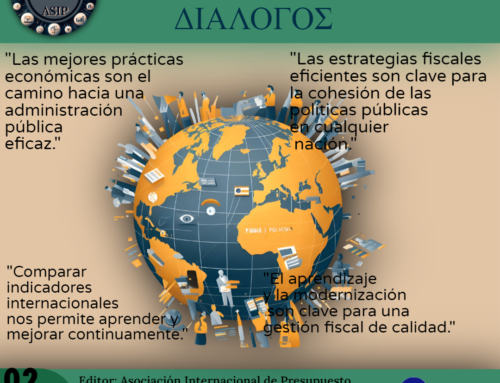Julio/Agosto 2017
Articles:
A Re-assessment of Fiscal Space in OECD Countries
Jarmila Botev, Jean-Marc Fournier and Annabelle Mourougane
Western Hemisphere A Survey of Gender Budgeting Efforts IMF
Lucía Pérez Fragoso and Corina Rodríguez Enríquez
Fiscal Rules: Towards a New Paradigm for Fiscal Sustainability in Small States
Allan Wright, Kari Grenade and Ankie Scott-Joseph
Editor´s note
An issue of great interest for public budgeting is to what extent public deficits can increase without putting fiscal sustainability at risk, given the specific current macroeconomic situation of protracted low growth and low interest rates, combined with relatively high government debt levels. The answer depends on many factors, such as the state of the economy, the fiscal track record and projections of population ageing and their effect on government spending.
The paper titled A Re-Assessment of Fiscal Space in OECD Countries makes use of three different approaches to better assess fiscal space, which can be define in a broad manner as the extent to which public debt can increase. Their authors, Jarmila Botev and Jean-Marc Fournier and Annabelle Mourougane argue that these approaches converge to a conclusion that there is fiscal space in most of the large advanced economies. There is also evidence that fiscal space may have risen in most OECD countries since 2014, mainly driven by the decrease in interest rates. In addition to this, reforms to health and pension programmes would also help to create additional fiscal space.
Lucía Pérez Fragoso and Corina Rodríguez Enríquez have written a very provocative article titled Western Hemisphere: A survey Gender Budgeting Efforts. Gender budgeting is an approach to fiscal policy and administration that integrates considerations of women’s equality and advancement into the budget. Latin American countries have undertaken diverse gender budgeting initiatives, most of them addressing public expenditures. This paper surveys and assesses some key initiatives, including those in Mexico, Mexico City, Ecuador, Bolivia, and El Salvador, and briefly summarizes others. The five key initiatives offer different perspectives on how countries approach gender budgeting. We find that these initiatives are contributing to the reduction of gender inequality and the advancement of women in Latin America, though there is scope to strengthen them.
Finally, this number includes a paper named Fiscal Rules: Towards a New Paradigm for Fiscal Sustainably Lift economic Growth. Their authors, Allan Wright, Kari Grenade and Ankie Scott-Joseph contend in their study that Caribbean countries cannot adequately surmount their fiscal and debt challenges in the absence of binding rules that are geared toward entrenching fiscal discipline, curbing fiscal procyclicality, and improving budget transparency and credibility. Distilling global lessons and taking due cognizance of Caribbean countries’ idiosyncrasies, the paper explores key technical, operational and institutional issues in the design, implementation, and monitoring of fiscal rules that might be relevant for Caribbean countries that currently do not have legislated rules. Results from simulations carried out to determine welfare effects and the extent of volatility of key macroeconomic variables under various fiscal rules scenarios suggest that of the different types of simulated fiscal rules, expenditure rules perform best in terms of reducing macroeconomic volatility, and in that regard, appear to be the most welfare enhancing. This is believed to be the first study to carry out such a simulation exercise for Caribbean countries. The findings of the study evince useful insights for policymakers on how to improve the design and conduct of fiscal policy for better fiscal and, by extension, development outcomes.




